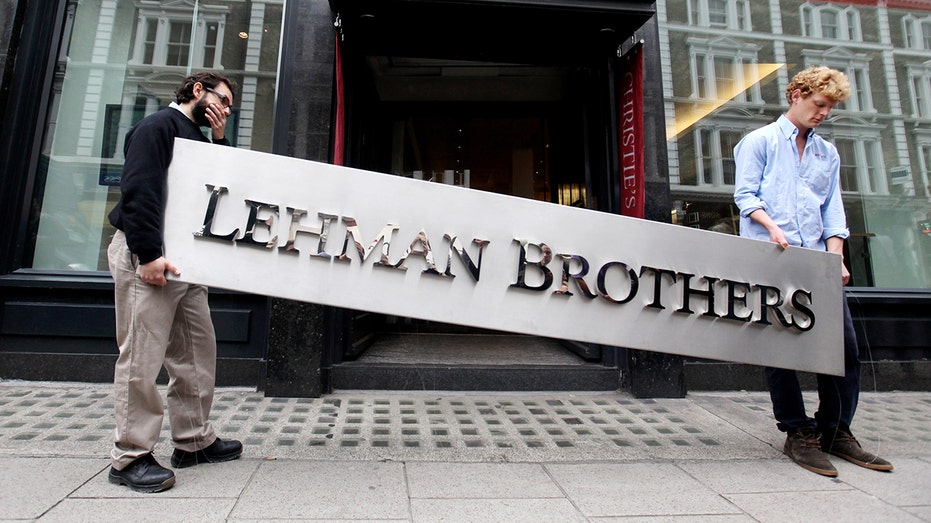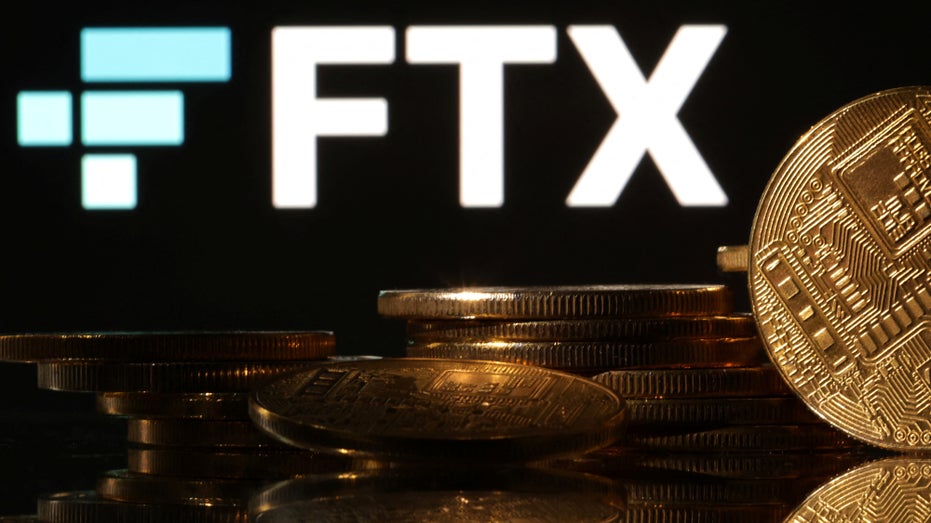Will FTX's bankruptcy spill into the general economy like Lehman Brothers?
Bankruptcy professor: Too early to know seriousness of damage from FTX bankruptcy
FTX meltdown is a tragic situation: Michael Saylor
MicroStrategy executive chairman Michael Saylor reacts to the fall of FTX on 'Making Money.'
FTX Trading may pull several other firms into bankruptcy. The Wall Street Journal reported Tuesday that crypto lender BlockFi is preparing for a possible filing.
The firm paused withdrawals, stating it could no longer operate its business as usual due its "significant exposure" to FTX.
"While we will continue to work on recovering all obligations owed to BlockFi, we expect that the recovery of the obligations owed to us by FTX will be delayed as FTX works through the bankruptcy process," BlockFi said.
Crypto asset management firm Ikigai also said it was unable to withdraw assets from FTX, where it had "a large majority" of the hedge fund’s total assets.
Additional crypto bankruptcies would not be a surprise. Several firms, including crypto hedge fund Three Arrows Capital and crypto lenders Celsius Network and Voyager Digital previously went under.
"One can see this wave of bankruptcies as an inevitable consolidation of a market that mostly offers the same thing and without sufficient differentiation many crypto assets will not survive," cryptocurrency expert Elvira Sojli told FOX Business. Sojli is an associate professor of finance and Scientia Fellow Alumni in the School of Banking and Finance at the University of New South Wales.
Jonathan Lipson, Temple University Harold E. Kohn Chair Professor of Law, told FOX Business that predicting the fate of other cryptocurrency companies is hard because most are unregulated and very opaque.
Lipson noted, for example, with the 2008 bankruptcy of investment bank Lehman Brothers, the Federal Reserve and other regulators were able to map transactional relationships to have a general sense of the financial fallout.
Lehman Brothers moment?

Employees of Christie's auction house manoeuvre the Lehman Brothers corporate logo i London, Sept. 24, 2010 (Oli Scarff/Getty Images)
Many observers have compared FTX to Lehman’s September 2008 bankruptcy. The mushroom cloud from the Wall Street bank’s failure spread outward into the general economy, sparking a worldwide contagion that helped trigger the 2008-2009 Great Recession.
"When Lehman fell, everyone felt it. Many will likely be harmed by the FTX bankruptcy, but it is too early to know whether the wreckage will reach Lehman proportions," Lipson said.
Both companies were innovators. Lehman packaged complex financial instruments for investors and benefited from a housing bubble buoyed by subprime mortgages, often given to homeowners who normally would not qualify for a loan. FTX rose on the rising popularity of a financial asset many did not understand.
Lipson notes Lehman was very important to the financial economy and the financial economy, in turn, was very important to the real economy. It’s unknown whether crypto plays similar role, as its influence has not been tested until now. "We just don’t know enough about the FTX transactions to know whether there will be analogous ripple effects."
Lipson points out Lehman was a trillion-dollar bankruptcy while FTX is in the billions. The firm’s bankruptcy petition lists estimated assets of $10 to $50 billion, with liabilities of the same amount. However, such numbers on a bankruptcy petition are often placeholders and there are allegations of financial fraud.
James Giddens, a court-appointed trustee in Lehman, ultimately recovered more than $115 billion to customers and creditors, satisfying 111,000 claims, with general unsecured creditors getting back 41 cents on the dollar. Unsecured creditors are claimants without collateral, such as customers.

Representations of cryptocurrencies are seen in front of displayed FTX logo in this illustration taken Nov. 10, 2022. (Reuters/Dado Ruvic/Illustration)
FTX-DRIVEN CRYPTO CHAOS EXPOSES WEAKNESSES BUT NOT ANOTHER 2000 DOT-COM DEBACLE
FTX initially estimated claims of about 100,000, most of whom are customers, but vastly expanded the number Tuesday to more than one million, including former customers.
News reports have raised questions about FTX’s finances. The firm admitted in a court document that it filed for bankruptcy "on an emergency basis" while facing "a severe liquidity crisis."
Law firm Entwistle & Cappucci, which is investigating the FTX bankruptcy, said the Bernie Madoff Ponzi scheme bears "an uncanny resemblance to the misuse and diversion of customer funds at FTX."
"In a normal bankruptcy, significant detail about the bankrupt entities’ holdings and financial condition is revealed in what are called ‘First Day Filings.’ It is highly unusual for sophisticated entities like FTX and Alameda to file a bare-bones bankruptcy petition," said the firm specializing in complex fraud and bankruptcy litigation."
FTX crisis doesn't change long-term success of crypto: Coinbase CFO Alesia Hass
Coinbase CFO Alesia Hass discusses the chaos surrounding crypto exchange FTX and if there are any suitors ready to buy the distressed company on 'The Claman Countdown.'
WHO’S REALLY TO BLAME FOR FTX CRYPTO COLLAPSE?
Reuters reported that at least $1 billion of customer funds have vanished from collapsed crypto exchange FTX, according to two people familiar with the matter.
They also told news outlet that founder Sam Bankman-Fried secretly transferred $10 billion of customer funds from FTX to Bankman-Fried's trading company Alameda Research.
CLICK HERE TO GET THE FOX BUSINESS APP
Lipson said he believes FTX and Lehman will ultimately be seen as being different, in part due to the novelty of crypto and because Lehman was a heavily regulated and publicly traded investment bank, whereas FTX was largely unregulated, meaning customers were responsible for bearing more risk for their investments.
Reuters contributed to this report.

